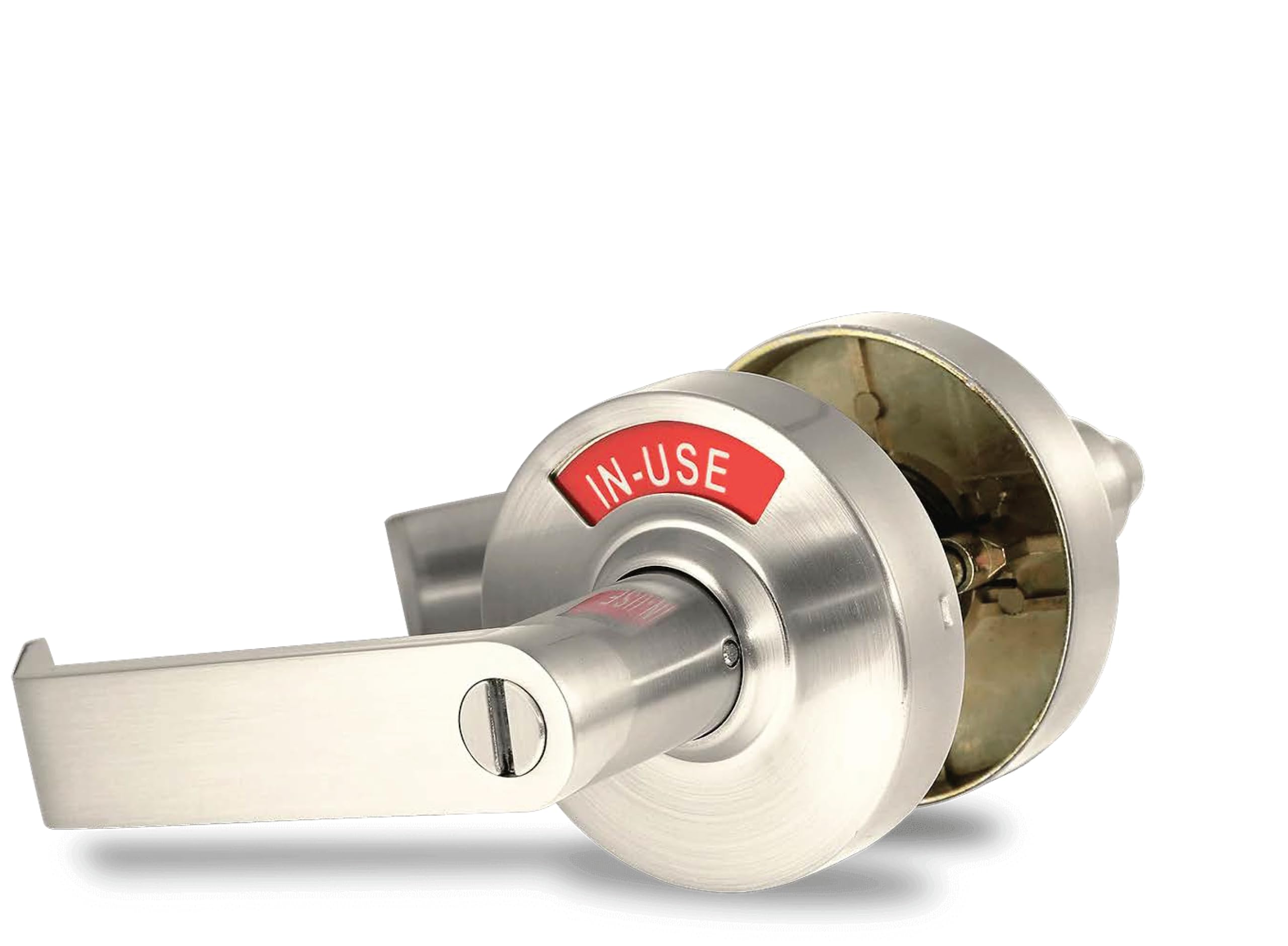
The Role of Privacy Locks in ADA-Compliant Restrooms
Public restrooms are essential facilities that should be accessible and inclusive for all individuals. Compliance with the Americans with Disabilities Act (ADA) ensures equal access and participation for individuals with disabilities. In this article, we will explore the connection between privacy locks and ADA compliance in public restrooms.
We will discuss how privacy locks, particularly those equipped with clear vacant/in-use indicators, play a vital role in ensuring accessibility and meeting the requirements of the ADA. By understanding the benefits of ADA compliance, both consumers and business owners can contribute to creating inclusive restroom environments.
Understanding ADA Compliance in Public Restrooms
The Americans with Disabilities Act (ADA) is a comprehensive legislation that prohibits discrimination against individuals with disabilities and mandates accessibility in various areas of public life, including restrooms. ADA compliance ensures that public restrooms are designed and equipped to provide equal access and convenience for individuals with disabilities. It involves adhering to specific guidelines regarding restroom layout, clearances, fixtures, and accessibility features such as grab bars, sinks, and toilets.
The Role of Privacy Locks in ADA Compliance
Privacy locks are an integral component of ADA compliance in public restrooms. When designed with clear vacant/in-use indicators, these locks offer additional accessibility and convenience. Individuals with disabilities can easily determine the availability of a restroom stall without the need for unnecessary physical exertion or awkward interactions. Privacy locks with clear indicators ensure that individuals can maintain their privacy and dignity while also respecting the needs of others in the restroom.
Ensuring Privacy and Independence for Individuals with Disabilities
Privacy locks equipped with clear indicators are particularly important for individuals with disabilities. These locks empower individuals with the knowledge of whether a restroom stall is occupied or available, reducing potential confusion and unnecessary physical effort. By offering clear indications of stall occupancy, privacy locks enhance independence, privacy, and comfort for individuals with disabilities. This not only promotes inclusivity but also contributes to the overall well-being and self-confidence of restroom users.
Meeting Consumer Needs and Expectations
The demand for ADA-compliant facilities is growing among consumers. People with disabilities, as well as their families, friends, and caregivers, actively seek out businesses and establishments that prioritize accessibility. By investing in privacy locks with clear indicators, businesses demonstrate their commitment to meeting consumer needs for accessible and inclusive restroom experiences. Such efforts enhance customer satisfaction and foster a positive reputation, leading to increased patronage and loyalty.
Benefits for Business Owners
ADA compliance brings numerous benefits for business owners. By ensuring that their restroom facilities are accessible and inclusive, businesses create a positive image and reputation. This, in turn, attracts a broader customer base and fosters customer loyalty. ADA-compliant restrooms, including privacy locks with clear indicators, contribute to a welcoming and accommodating environment, promoting positive word-of-mouth recommendations and repeat business.
In conclusion, privacy locks play a significant role in achieving ADA compliance and ensuring accessibility in public restrooms. These locks, particularly those equipped with clear vacant/in-use indicators, contribute to the overall inclusivity, privacy, and independence of individuals with disabilities. As a result, ADA-compliant restroom facilities not only meet legal requirements but also enhance customer satisfaction, promote positive business reputation, and foster a more inclusive society. By embracing the importance of privacy locks in ADA-compliant restrooms, businesses can make a meaningful impact on the lives of individuals with disabilities while reaping the benefits of a more inclusive and customer-centric approach.



